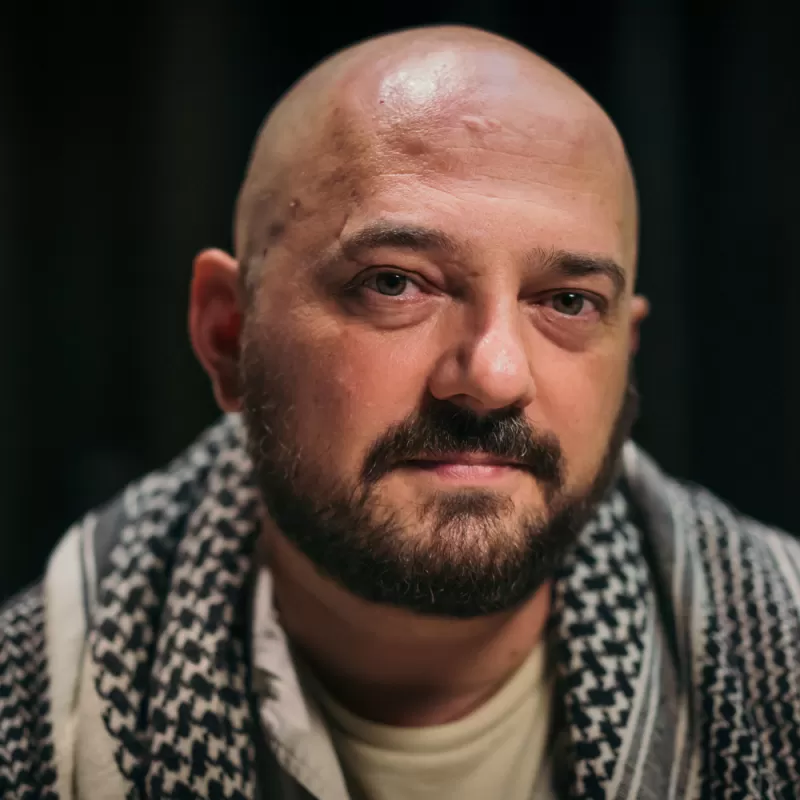
It is very difficult to talk a dictatorship into behaving nicely. The regime always knows better. It doesn’t need advice, observations or warnings from outside; the principle of "non-interference in internal affairs" is held in high esteem. The only way is for the regime to be somehow constrained, to be made aware that there are consequences for its behavior. An extreme solution is military intervention, which can be extremely costly from a human, economic and political point of view, and is sometimes impossible. The most common method is that of sanctions; the problem is that dictatorships can have a fairly high tolerance for them.
Saddam, the survivor
In 1991, a US-led coalition destroyed the army Saddam Hussein had sent to occupy Kuwait in just a few weeks. The coalition aviation not only attacked troops in Kuwait, but also bombed numerous military and civilian infrastructure targets in Iraq. Believing that Saddam's days were numbered, Shiites in the south rioted: the Coalition's strong army could have easily advanced as far as Baghdad. But the Americans chose to stop and allow Saddam to stay in power. The forces loyal to the dictator bloodily suppressed the rebellion. Saddam proclaimed victory, not because his troops had won, but because his regime had survived the "mother of all battles", "Umm al ma'arik" - the propaganda name of the Gulf War.
12 years of severe embargo followed, meant to force Saddam into giving up his arsenal of weapons of mass destruction. The Iraqi dinar collapsed: the old banknotes, from the time when it was one of the strongest currencies in the East, could no longer cope with inflation, so for larger purchases the money was carried, literally, in bags. A dollar could buy you, at one point, 6 tons of gasoline, because the government had kept the price from the good old days. A large part of the population depended on the food rations distributed by authorities, and a university professor, for example, earned less than twenty dollars a month (for comparison, at that time I would spend three times more on cigarettes and all sorts of trifles).Poverty was reflected in the quality of goods in once prosperous commercial areas, in the cars in the streets, old pieces of junk full of patches, in the explosion of the number of prostitutes, implausible in such a conservative country. I remember the first impression that Baghdad left on me when I got there, a few years after the embargo had been imposed: a decaying city.On top of that, Iraq was almost completely isolated diplomatically, with no external partners capable of supporting its cause, civilian air traffic was blocked, and the United States also had a military presence in the region, monitoring troop movements and the airspace and even intervening when deemed necessary, as it happened in 1998 when they launched, together with Great Britain, the Desert Fox operation, a bombing campaign that lasted several days.In contrast to the hardships faced by most of the population, at the top of the pyramid of power people lived luxurious lives, Saddam was building palace after palace, and the cult of personality was growing bigger by the year: Saddam had statues, portraits of him were everywhere, from banknotes and mosaics to photos of him on the first page of textbooks and paintings in groceries, important buildings were named after him, etc.Iraqis are a fierce nation, always ready to grab their weapons - which many had in Saddam's time - to avenge an insult or pay a blood debt. None of this, neither the poverty, nor the blatant inequalities, or the abuses and offenses of the regime caused them to revolt to such an extent as to threaten the regime. Saddam remained in power until the United States decided to mobilize a new coalition to remove him. Alone against the world's only superpower, the Iraqi dictator stood no chance; after only six weeks, George W. Bush gave his famous "mission accomplished" speech - but the real war was just beginning. The removal of a dictator does not always have a happy ending, and examples of this abound, from post-Shah Iran to post-Gaddafi and post-Saleh Libya and Yemen respectively.
The sanctions are ineffective on the short and medium term
Saddam's case is not a singular one; I chose him only to demonstrate a dictatorship’s ability to survive even in extreme conditions - after a devastating defeat, without any significant external support, in conditions of severe economic crisis, under a strict embargo, with a significant part of the population hostile.North Korea is subject to sanctions imposed by the UN, the United States and the European Union, most of them enforced after the country's first nuclear test in 2006, but some adopted even before that time. The hope was that the sanctions would persuade Pyoing Yang to at least give up the development of its nuclear arsenal. That, however, continued to be developed, as was the ballistic program, and the Kim dynasty survived even a transfer of power and its takeover by a young and inexperienced Kim Jong Un.The EU, the United States and other allies have imposed economic sanctions on Venezuela in response to crackdowns on anti-government protests. On top of that, the country is facing an economic crisis, hyper-inflation, famine, the collapse of strategic oil infrastructure, and Western powers have recognized an alternative leadership of opposition representatives. Maduro continues to call the shots.All these examples show that sanctions, even if they weaken a regime and sometimes force it to compromise - Saddam gave up his arsenal of weapons of mass destruction, even if no one believed him, Iran agreed to negotiate and sign the Nuclear Agreement with the great powers etc. - they need time to take effect and there is no guarantee that this will happen.
Lukashenko’s defiance and the West’s powerlessness
Alexander Lukashenko defied the EU - and the West in general - by forcing a Ryanair plane, which had taken off from Athens for Vilnius, to land in Minsk. The incident took place shortly before the meeting of the European Council, which decided to tighten the sanctions already imposed on Belarus. It is unlikely that the decision impressed Lukashenko, let alone intimidate him or significantly undermine his regime.
Alexander Lukashenko has been in power since 1994. Already in the 2000s he was termed by the United States as "Europe's last dictator." Since 1997, the regime has been targeted by a whole host of European and American sanctions, regularly lifted based on Lukashenko's promises to change or various developments in the relation with Russia. Before the hijacking of the Ryanair aircraft, the last wave of sanctions had come after the fraudulent presidential elections of August 2020 and the brutal repression of the protests that followed.Europeans have now decided to extend those sanctions and, in addition, to recommend EU airlines to avoid Belarusian airspace and the Member States not to allow aircraft from Belarus to fly over. Too little for a regime whose priority now is to neutralize and punish those who oppose it. Lukashenko knows he has little to fear. A total embargo is out of question, because it would be a collective punishment, and the time for military interventions for the sake of changing a regime is long gone. After all, a guy like Assad was allowed to slaughter his population, including with chemical weapons, and the West did nothing about it.In addition, Lukashenko knows that, at least for now, unlike other dictators, he can rely on both the support and proximity of Russia; which is not guided by any liberal democracy beacon either.


